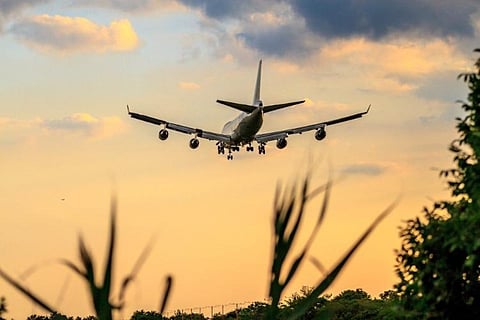

India's aviation sector suffered a severe blow in 2020 due to the COVID-19 pandemic with its domestic air passenger traffic plunging by 55.6% in 2020 on a year-on-year basis. As per the data furnished by the International Air Transport Association (IATA) on Wednesday, the fall in India's domestic air passenger volume -- measured in revenue passenger kilometres -- was the third highest amongst major aviation markets such as Australia, Brazil, China, Japan, Russia and the US.
In the period under consideration, India's domestic passenger traffic decline was preceded by that of Australia at 69.5% and the US's at 59.6%.
The country's domestic available passenger capacity -- measured in available seat kilometres (ASKs) -- fell by 48% on a YoY basis.
India's domestic air passenger volume plunged in March 2020 due to the imposition of a nationwide lockdown and the scare around the spread of COVID-19.
It was on May 25 that gradual re-opening of the domestic operations was allowed.
At present, no foreign flights are allowed, however, operations under 'air bubble', evacuation and cargo are going on.
In terms of global passenger traffic demand, the data showed a fall of 65.9% in 2020 from 2019 levels.
"International passenger demand in 2020 was 75.6% below 2019 levels. Capacity declined 68.1% and load factor fell 19.2 percentage points to 62.8%," IATA said.
"Domestic demand in 2020 was down 48.8% compared to 2019. Capacity contracted by 35.7% and load factor dropped 17 percentage points to 66.6%."
As per the data, bookings for future travel made in January 2021 were down 70% compared to a year-ago, putting further pressure on airline cash positions and potentially impacting the timing of the expected recovery.
IATA's baseline forecast for 2021 is for a 50.4% improvement on 2020 demand that would bring the industry to 50.6% of 2019 levels.
"While this view remains unchanged, there is a severe downside risk if more severe travel restrictions in response to new variants persist."
"Should such a scenario materialise, demand improvement could be limited to just 13% over 2020 levels, leaving the industry at 38% of 2019 levels."